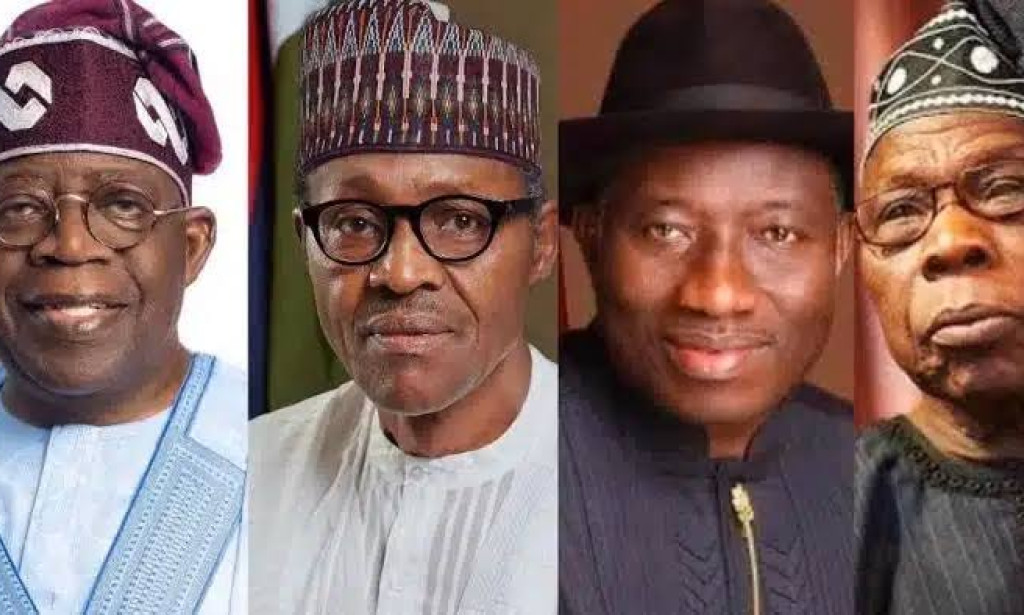
Nigeria's political landscape has undergone significant transformations since the return to democratic governance in 1999. The presidential elections during this period have been characterized by strategic alliances, regional dynamics, and the influence of key political figures. This article delves into the electoral victories of Nigeria's former presidents, focusing on the strategies they employed, particularly the selection of running mates, which played a crucial role in their success.
Olusegun Obasanjo: The Return of Democracy (1999-2007)
Olusegun Obasanjo's victory in the 1999 presidential election marked a pivotal moment in Nigeria's history, as it signified the end of military rule and the restoration of democratic governance. Obasanjo, a former military head of state, capitalized on his status as a political elder statesman and a symbol of national unity. His choice of Atiku Abubakar, a prominent northern politician and businessman, as his running mate was a strategic move that significantly enhanced his chances of winning.
Regional Balance and Political Influence
By selecting Atiku, Obasanjo effectively balanced the ticket between the predominantly Christian south and the Muslim north, appealing to a broader electorate. Atiku's influence in the northern region, coupled with his political experience and connections, helped to galvanize support for the Obasanjo-Atiku ticket. The duo's campaign focused on national reconciliation, economic reform, and the fight against corruption, resonating with a populace eager for change.
Obasanjo's re-election in 2003 further solidified his political legacy. His administration's focus on economic growth, infrastructure development, and anti-corruption measures garnered significant public support, allowing him to secure a second term in office.
Umaru Musa Yar'Adua: Continuity and Transition (2007-2010)
Following Obasanjo's tenure, Umaru Musa Yar'Adua emerged as the presidential candidate of the People's Democratic Party (PDP) in 2007. Yar'Adua's campaign was marked by a commitment to the rule of law and a promise to address the Niger Delta crisis. His selection of Goodluck Jonathan, the then-Governor of Bayelsa State, as his running mate was a calculated decision aimed at consolidating support from the southern region.
The Doctrine of Necessity
Yar'Adua's presidency, however, was cut short by his untimely death in 2010. Jonathan, who had been serving as vice president, ascended to the presidency through the doctrine of necessity, which allowed him to continue the policies of his predecessor while also addressing pressing national issues. Jonathan's leadership style and his focus on economic development and social reforms initially garnered public support, but his administration faced significant challenges, including corruption allegations and security issues, particularly in the northeast.
Goodluck Jonathan: A Fragile Presidency (2010-2015)
Jonathan's presidency was marked by a mix of achievements and controversies. His administration's efforts to improve infrastructure and education were overshadowed by rising insecurity due to the Boko Haram insurgency and widespread corruption. In the 2015 presidential election, Jonathan sought re-election but faced a formidable opponent in Muhammadu Buhari, a former military ruler and the candidate of the All Progressives Congress (APC).
The 2015 Election: A Shift in Power
Buhari's campaign capitalized on widespread discontent with Jonathan's administration, particularly regarding security and economic management. Buhari's choice of Yemi Osinbajo, a respected lawyer and former Attorney General of Lagos State, as his running mate was a strategic move aimed at appealing to the southern electorate. The APC's platform, which focused on anti-corruption, security, and economic revitalization, resonated with voters disillusioned by the PDP's long-standing rule.
Buhari's victory in 2015 marked a significant shift in Nigeria's political landscape, as it was the first time an incumbent president was defeated in Nigeria's history. The APC's ability to unite various political factions and present a credible alternative to the PDP was instrumental in Buhari's success.
Muhammadu Buhari: A Divisive Leadership (2015-2023)
Buhari's presidency was characterized by a focus on anti-corruption and economic reforms, but it also faced criticism for its handling of security issues and ethnic tensions. His administration's approach to governance often polarized the nation, leading to significant challenges in maintaining national unity.
The 2023 Election: A New Era
As Buhari's tenure came to an end, Bola Ahmed Tinubu, a seasoned political strategist and former Governor of Lagos State, emerged as the APC's presidential candidate for the 2023 elections. Tinubu's selection of Kashim Shettima, a two-time Governor of Borno State, as his running mate was met with controversy due to the Muslim-Muslim ticket. However, Tinubu's political acumen and ability to navigate Nigeria's complex political landscape ultimately secured him the presidency.
The Role of Regional Dynamics
Tinubu's campaign effectively leveraged regional dynamics, appealing to both northern and southern voters despite the contentious nature of the ticket. His experience as a former governor and his reputation as a political kingmaker in the southwest played a crucial role in rallying support. The APC's strategy focused on continuity and the promise of economic development, which resonated with a populace eager for stability and progress.
The 2023 election saw Tinubu face formidable opponents, including Atiku Abubakar of the PDP and Peter Obi of the Labour Party. Atiku, with Dr. Ifeanyi Okowa as his running mate, aimed to capitalize on his extensive political experience and the PDP's historical dominance. Meanwhile, Obi's campaign attracted significant youth support, driven by a desire for change and a break from the traditional political elite. However, despite Obi's impressive grassroots mobilization, the APC's established political machinery and Tinubu's strategic alliances ultimately led to his victory.



You must be logged in to post a comment.